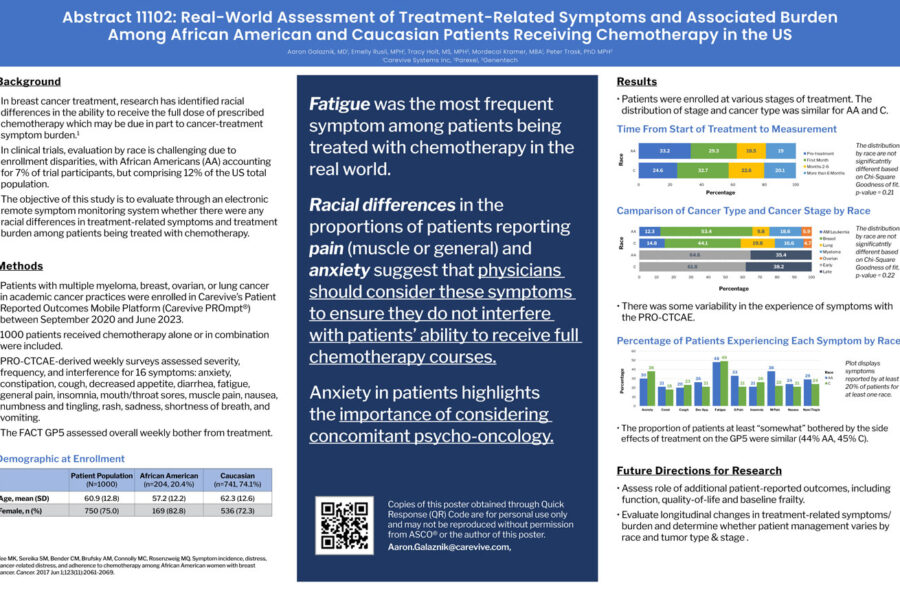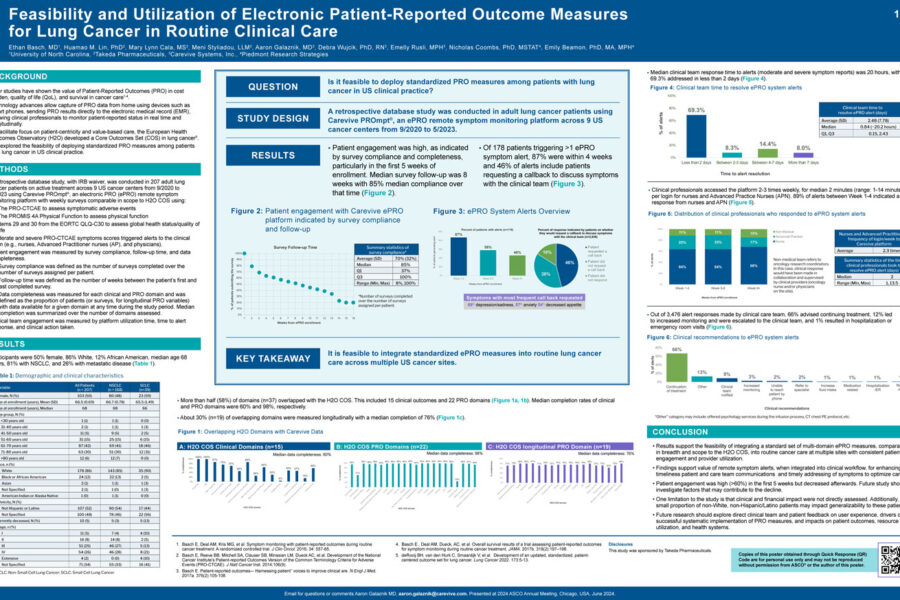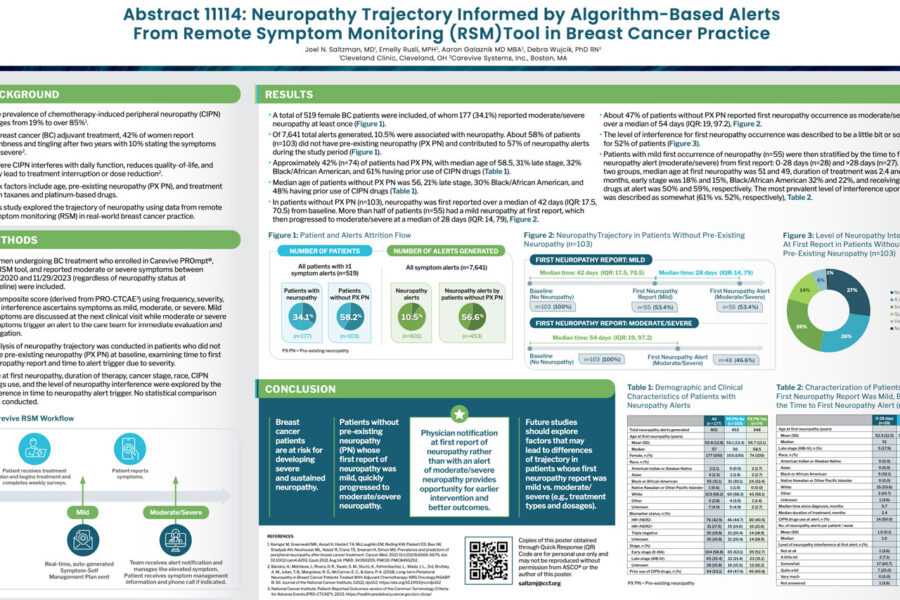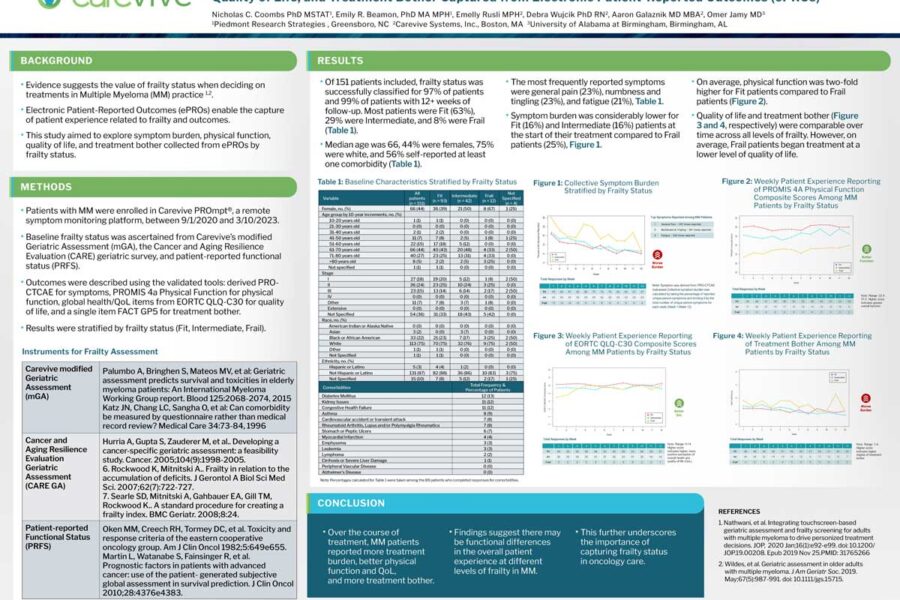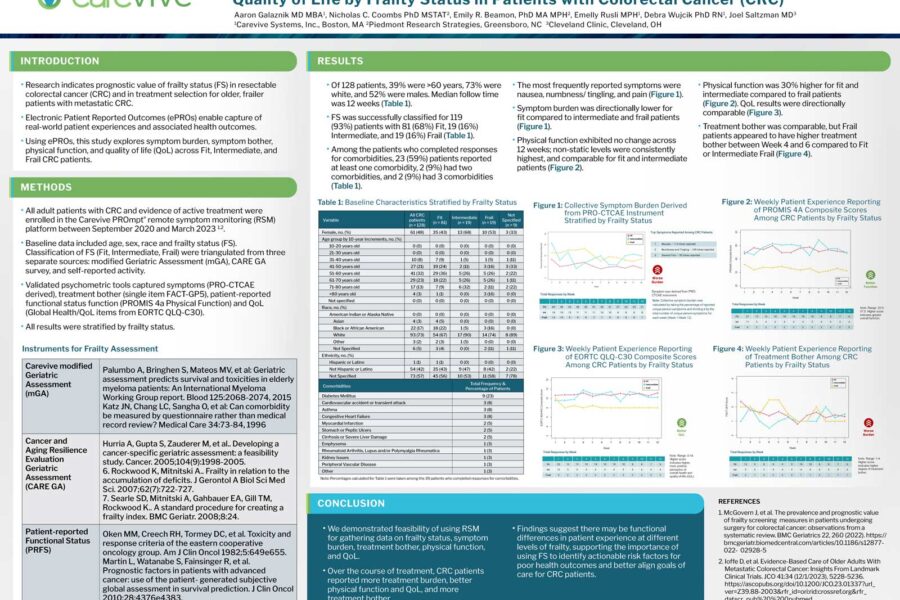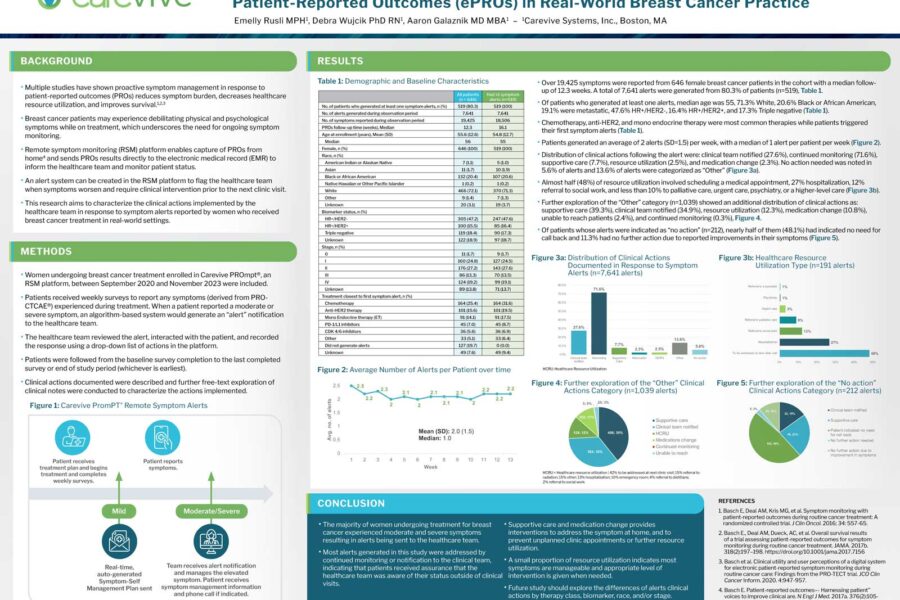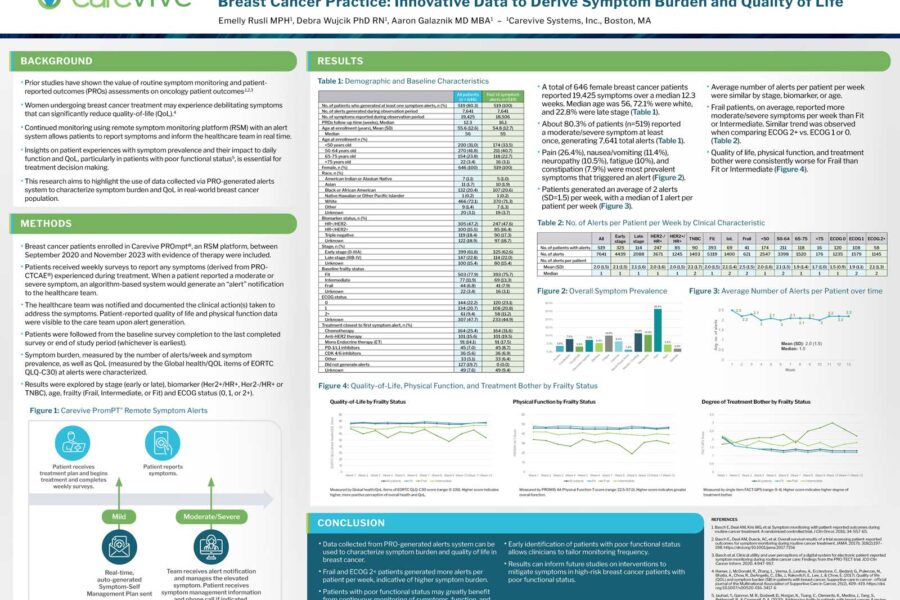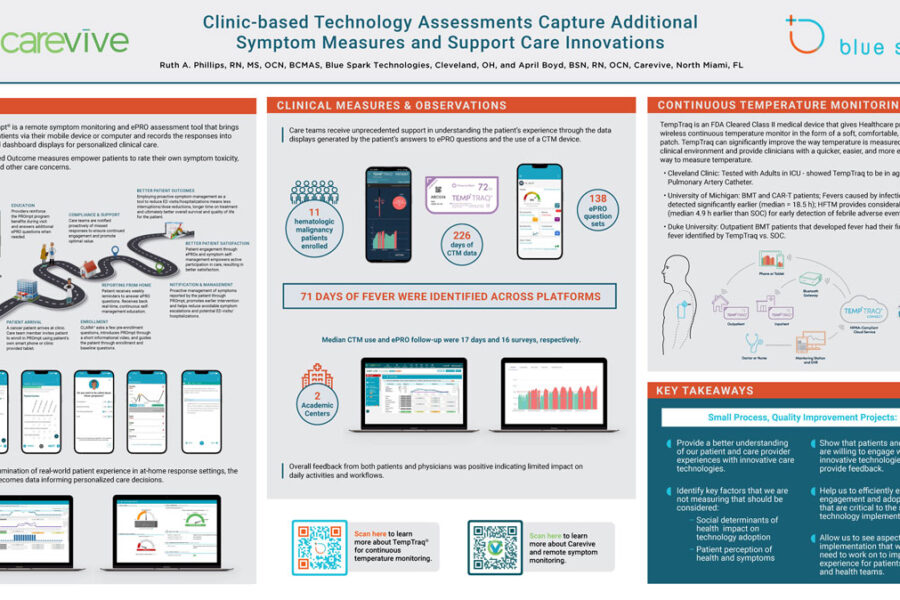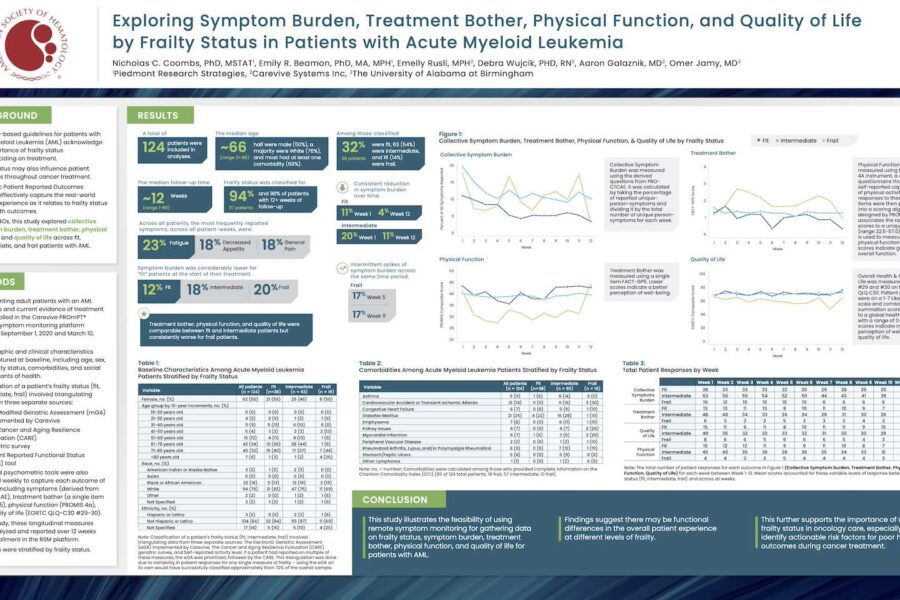Invaluable Oncology Insights

A Collection of Publications, Presentations, & Posters Carevive offers data across a broad set of cancer types, including solid and liquid tumors, leveraging our company’s knowledge and passion in conjunction with our innovative digital oncology platform we assist clients to gain data insights to their oncology value chain. A compilation of Carevive data and findings that was presented at major…
CareviveJuly 19, 2024


